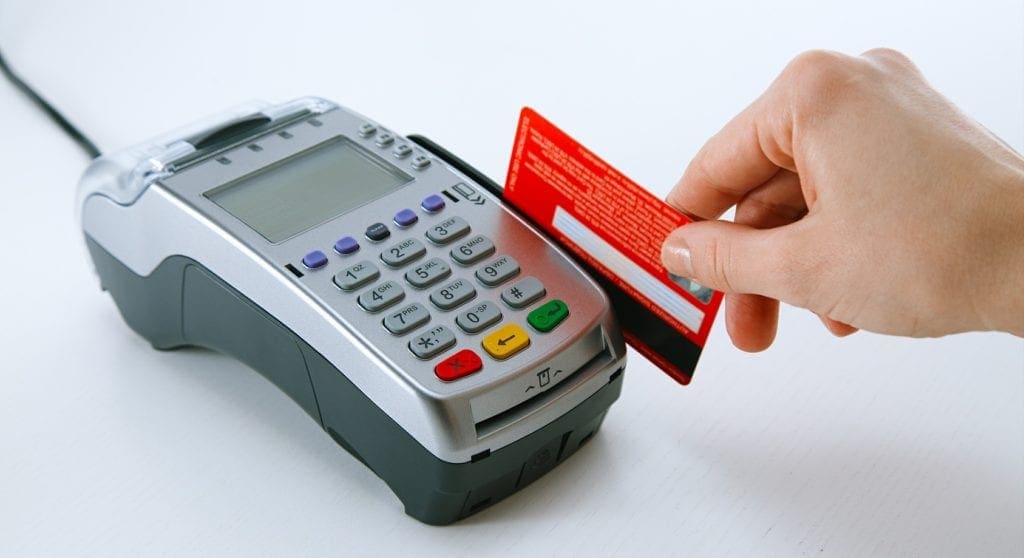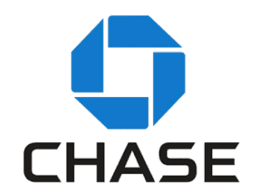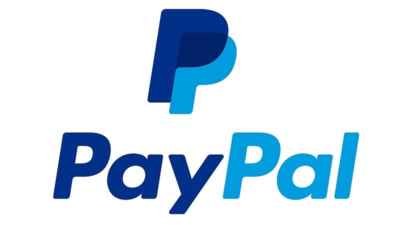How Much Do Credit Card Processors Cost for Small Businesses in 2025?
Credit card processing fees are typically charged on a percentage basis of 0.35% to 3.2% on every transaction, depending on whether or not the card was present at the point of purchase. On top of that, there is usually a monthly fee that may range as high as $35-$50 per month.
Featured Solutions

Helcim
- 0.40% + 8¢, plus interchange in-person
- 0.50% + 25¢ plus interchange, online
- Monthly Fee: $0.00
The cost of credit card processing is influenced by several key factors:
- Interchange Fees: Set by credit card networks (like Visa, Mastercard), these fees vary based on card type, transaction size, and industry. Higher-risk transactions generally incur higher fees.
- Processor’s Markup: This is the additional cost added by the credit card processor for their services. It can vary greatly between processors, affecting overall costs.
- Transaction Type: In-person (card-present) transactions usually have lower fees compared to online (card-not-present) transactions, due to higher fraud risk in the latter.
- Payment Card Industry (PCI) Compliance: Adhering to these security standards can incur costs, but non-compliance may lead to higher fees or fines.
- Additional Fees: These can include monthly fees, payment gateway fees, statement fees, and others, varying widely among processors.

Credit Card Processing Fees By Company
 stripe
stripe
- Starting At 2.7% + 5¢
- In-person; 2.9% + 30¢ online.
- Monthly Fee: $0.00
Stripe’s credit card processing stands out for its seamless integration and user-friendly interface. Ideal for online businesses, it offers transparent pricing and robust security features. Although it’s more suited for tech-savvy users, its reliability and extensive customization options make it a top choice for e-commerce platforms.
COMPARE helcim
helcim
- 0.40% + 8¢, plus interchange in-person
- 0.50% + 25¢ plus interchange, online
- Monthly Fee: $0.00
Helcim impresses with its transparent, volume-based pricing and no long-term contracts, making it ideal for small to medium-sized businesses. Its all-in-one platform offers robust features like invoicing and inventory management. While its fees can be higher for low-volume merchants, its customer service and reliability are commendable.
COMPARE Square
Square
- 2.6% + 10¢
- in-person; 2.9% + 30¢ online
- Monthly Fee: $0.00
quare’s credit card processing is renowned for its straightforward pricing and ease of use, catering superbly to small businesses and entrepreneurs. Its free mobile card reader and no monthly fees are highlights, although transaction fees can be high for larger volumes. Its versatility and user-friendly interface make it a popular choice.
COMPARE stax
stax
- 0% + $0.08
- Plus interchange
- Monthly Fee: $99.00
Stax by Fattmerchant stands out in the credit card processing market for its subscription-based pricing model, eliminating the percentage markup over interchange. This straightforward approach offers significant savings for businesses with high transaction volumes. Stax’s user-friendly platform and excellent customer support further enhance its appeal, making it a top choice for many businesses.
COMPARE shopify
shopify
- In-person: 2.7% + $0.00
- line: 2.9% + $0.30
- Monthly Fee: $29.00
Shopify’s credit card processing is seamlessly integrated into its e-commerce platform, offering convenience and efficiency for online retailers. With competitive rates, transparent pricing, and no hidden fees, it’s an excellent choice for businesses of all sizes. Additionally, its robust security features ensure safe transactions, enhancing customer trust and satisfaction.
COMPARE Chase
Chase
- In-person: 2.6% + $0.10
- Online: 2.9% + $0.25
- Monthly Fee: $0.00
Chase for Business credit card processing offers reliable and secure payment solutions, ideal for businesses seeking a trusted financial partner. Its competitive rates, varied terminal options, and integration with Chase banking services make it a comprehensive choice. Exceptional customer support and fraud protection further enhance its appeal to business owners.
COMPARE PayPal
PayPal
- In-person: 2.29% + $0.09
- Online: 2.59% + $0.49
- Monthly Fee: $0.00
PayPal’s credit card processing is renowned for its ease of use and widespread acceptance, making it a popular choice for businesses of all sizes. Its flexibility to handle online, in-person, and mobile payments, combined with competitive fees and strong security measures, ensures a convenient and secure transaction experience for customers.
COMPAREMerchant Services Terms to Know
Here’s a breakdown of various merchant services terms using headlines, bullets, and sub-bullets with increased indents for clarity:
 Merchant Services Terms
Merchant Services Terms
- Merchant Account
- A type of bank account allowing businesses to accept and process electronic payment card transactions.
- Acquiring Bank: The bank that provides the merchant account and handles card transactions.
- ISO (Independent Sales Organization): Third-party companies that partner with acquiring banks to offer merchant accounts.
- A type of bank account allowing businesses to accept and process electronic payment card transactions.
- Payment Gateway
- A service that authorizes and processes payments in online and offline transactions.
- Encryption: The process of encoding card information for secure transmission.
- API (Application Programming Interface): A set of tools and protocols for integrating the payment gateway with other systems.
- A service that authorizes and processes payments in online and offline transactions.
- Point of Sale (POS) System
- Hardware and software used for processing card payments at retail locations.
- Terminal: The physical device that reads credit/debit cards.
- POS Software: Application for managing sales, inventory, and customer data.
- Hardware and software used for processing card payments at retail locations.
- Card Networks
- Organizations that establish the rules and standards for card transactions.
- Visa, Mastercard, American Express, Discover: Major card networks.
- Interchange Fees: Fees paid between banks for the acceptance of card-based transactions.
- Organizations that establish the rules and standards for card transactions.
- Chargeback
- A demand by a credit-card provider for a retailer to make good on the loss on a fraudulent or disputed transaction.
- Dispute Resolution: The process to resolve a chargeback.
- Fraud Prevention Tools: Systems in place to detect and prevent unauthorized transactions.
- A demand by a credit-card provider for a retailer to make good on the loss on a fraudulent or disputed transaction.
- PCI Compliance (Payment Card Industry Data Security Standard)
- A set of security standards designed to ensure that all companies that accept, process, store or transmit credit card information maintain a secure environment.
- PCI DSS Requirements: Specific requirements for maintaining payment security.
- Compliance Assessment: Regular checks to ensure adherence to PCI standards.
- A set of security standards designed to ensure that all companies that accept, process, store or transmit credit card information maintain a secure environment.
- EMV (Europay, MasterCard, and Visa)
- A global standard for credit and debit payment cards based on chip card technology.
- Chip Card: A card that contains an embedded microchip along with the traditional magnetic stripe.
- EMV Compliance: The process of upgrading POS systems to accept chip cards.
- A global standard for credit and debit payment cards based on chip card technology.
- Mobile Payments
- Payment services performed from or via a mobile device.
- NFC (Near Field Communication): A technology that allows two devices to communicate when they are close together.
- Digital Wallets: Applications that store payment information for convenience and quick payment processing (e.g., Apple Pay, Google Wallet).
- Payment services performed from or via a mobile device.
There are other terms involved with the credit card process, but these are important for determining the price your business is charged.
COMPARE QUOTESTips For Choosing a Credit Card Processing Solution
When choosing a credit card processing solution, it’s important to consider several key factors to ensure that you select a service that meets your business needs effectively. Here is a structured guide:
1. Understanding Your Business Needs
- Type of Transactions
- In-person (POS systems)
- Online (E-commerce platforms)
- Mobile (For on-the-go transactions)
- Volume of Transactions
- Low, medium, or high transaction volume
- Industry Specific Needs
- Special requirements for different industries (e.g., hospitality, retail)
2. Evaluating Costs and Fees
- Transaction Fees
- Percentage per transaction
- Flat fee per transaction
- Monthly and Annual Fees
- Service fees
- Equipment rental fees
- Hidden Costs
- Cancellation fees
- Compliance fees
3. Considering Security and Compliance
- PCI Compliance
- Ensuring the processor is PCI DSS compliant
- Data Security Features
- Encryption and tokenization of data
- Fraud Protection
- Tools for detecting and preventing fraudulent transactions
4. Exploring Integration and Compatibility
- Compatibility with Existing Systems
- Integration with current POS systems and accounting software
- Ease of Integration
- User-friendly interface and simple setup process
5. Analyzing Customer Support and Service
- Availability
- 24/7 support, business hours support
- Support Channels
- Phone, email, live chat
- Quality of Service
- Response time, problem-solving efficiency
6. Checking Reviews and Reputation
- Customer Reviews
- Experiences of other businesses
- Industry Reputation
- Awards, recognitions, and industry ratings
7. Understanding Contract Terms and Flexibility
- Length of Contract
- Month-to-month, yearly contracts
- Termination Policies
- Fees and notice periods for contract termination
- Scalability
- Ability to adapt to business growth and change in transaction volume
By carefully considering these factors, you can choose a credit card processing solution that not only fits your current business requirements but also adapts to future growth and changes in the market.
COMPARE QUOTESHow do Merchant Services Work?
Merchant services is another term for the services provided by a credit card processing provider. There is a lot that goes on behind the scenes when a credit card is processed. A relationship is built between the cardholder, merchant, card network, processing company, and banks involved.
The process begins with the cardholder. Once they use the merchant’s processing software to purchase a product or service, the relationship begins.
- The merchant’s bank service (acquiring bank) receives the payment request and sends this on to the cardholder’s bank.
- The process is reviewed by the credit card network and approvals or denials are issued.
- The approval or denial is sent back to the merchant’s bank for the next step.
- The merchant’s bank sends this approval or denial back to the merchant for complete processing at the end of the day.
- The merchant’s software sends all approvals back to the bank at the end of the day and funds are deposited into the merchant’s account.
- The merchant’s bank sends a payment request to the cardholder’s bank for repayment.
This process sounds complicated, but the approvals and payments happen quickly. For each credit card processed, the processing provider charges a percentage of the sale.
Low-Volume Versus High-Volume Processing
Each business differs in the number of sales each day. Some merchant services work better with high-volume processing and some work well with low-volume. Be realistic about your daily sales when deciding on a credit card processing provider.
If your business does low-volume sales, look for a provider that offers lower processing fees or pay-as-you-go options. Remember that your business is charged a fee for each payment processed, so you want to plan accordingly.
Security Options
Security is an important factor when dealing with people’s financial information. Make sure you research each processing provider’s security history so you pick a company that will keep your customer’s information secure.
Your business security is another important factor. Check for fraud detection services with each platform to ensure you’re not coming up against excessive charge-back fees for fraudulent purchases.
Understanding Merchant Fees
Merchant fees involved with a credit card processing provider will differ based on many factors. When choosing a provider, it’s important to understand these factors and the effect they have on your business’ options. When comparing prices, there are some questions you want to keep in mind.
-
What Fees are Involved?
There are some fees involved with any processing rates. These include authorization fees, discount fees, basis points, and chargeback fees. There are some factors that influence these fees.
- The credit card network
- Card present versus card not present
- Your merchant category.
- Card type (credit versus debit cards)
Each of these factors is considered when fees are processed. There are other fees to consider though.
Many processing providers require a monthly fee to keep your merchant services active. These fees can range from $5 to $40 per month depending on the services you access.
Monthly minimums can also affect your fees for processing services. Many providers require a monthly minimum on the fees paid for services. If you don’t reach these monthly minimums, the provider will charge you for the difference.
Each provider requires these minimums based on different fees involved, so keep this in mind when comparing prices. Make sure providers that require minimums are upfront about the fees that will count towards your minimum requirements.
Watch out for inflated fees as well. Make sure you choose a merchant service with a good reputation. Some providers may trick businesses with hidden or inflated fees that raise prices considerably.
-
How Much Will the Necessary Equipment Cost?
 The cost of merchant processor equipment varies widely, depending on the type and features. Basic credit card terminals can range from $30 to $300, while advanced Point of Sale (POS) systems may cost between $500 and $1,500 or more. Some providers offer leasing options or include equipment as part of their service package. Additional costs for accessories, software, or enhanced security features should also be considered. Prices are influenced by brand, technology, and functionality.
The cost of merchant processor equipment varies widely, depending on the type and features. Basic credit card terminals can range from $30 to $300, while advanced Point of Sale (POS) systems may cost between $500 and $1,500 or more. Some providers offer leasing options or include equipment as part of their service package. Additional costs for accessories, software, or enhanced security features should also be considered. Prices are influenced by brand, technology, and functionality.
-
What is the Contract and Cancellation or Termination Policy?
Most providers require a contract for the services they provide. Make sure you understand and keep up with the contract policy. Knowing your contract terms will help you renegotiate when it’s time to renew a contract.
Some providers offer a pay-as-you-go option, but this option can increase monthly charges. Do your research on contracts and fees required. These fees also include the provider’s cancellation policy.
Ideally, you’ll find the perfect credit card processing provider for your business and not have to worry about terminating your service. Many things can happen though that might require you to cancel your service.
Make sure you understand the provider’s cancellation policy before making a final decision. Some services allow a no penalty termination. Some require a penalty fee if you cancel your service before the contract is complete.
-
What Features are Offered?
Just because a provider is cheaper doesn’t mean it’s your best option. Keep in mind that more features will increase the price of the service provided. Compare the features offered to your business needs when planning your purchase.
Are you an online store, a brick-and-mortar, or both? These questions will affect whether you need online payment options or in-store.
Look for payment deposit options as well. What are the fees associated with depositing funds into your account? How often will finds get deposited?
Also, pay attention to security features. Do they offer any type of fraud insurance or security? Is the provider security compliant?
Understand the risk involved for your business in security breaches so you can choose the best option. Extra security measures may cost more but could save you money down the line.
-
What Customer Support and Reports Does the Merchant Service Provider Offer?
Setting up your credit card processing systems can prove tricky at first. You should check out the ease of set up as well as the customer support offered for getting started. Also, check the provider’s availability for questions or maintenance issues.
Check on the credit card processing provider’s transaction reporting policy as well. What information will they provide in their transaction reports? You want as much information as possible.
Look at how they break down their monthly fees so you know what you’re spending money on each month. Also, make sure they provide full reports on the authorized purchases for each month.
Another consideration here is how the processing provider’s transaction reports integrate with your financial software. Look for options that work with your current software so bookkeeping is easier.
COMPARE QUOTESKnow how often you’ll receive reports as well. Will you get daily or monthly reports? This will help you know how to track your payments and funds received for easier financial tracking.

Credit Card Processing Sample Costs
Below are a few examples of prices for credit card processors which will give you an idea of how much you will pay for your purchase.
- $85 to $210 Minimum Cost of EMV Upgrades
- Interchange Plus Markup range is between 16% -0.26%
- Per transaction fees cost about $0.11
- Swiped Debit Card Rates average 2%
- 3.5% average for swiped credit cards
Choosing the Right Merchant Services for Your Business
While important for your business’s success, comparing credit card processor prices is a time-consuming endeavor. There are many options available and many factors to consider.
If you’re overwhelmed with the different options available there is an option to make the process easier. Contact us for a custom quote so you can find the right merchant services option for your business.
Find Credit Card Processors Near You and Compare Up To Five Money Saving Quotes
People That Viewed This Page Also Found These Pages Helpful:



 stripe
stripe helcim
helcim Square
Square stax
stax shopify
shopify Chase
Chase PayPal
PayPal Merchant Services Terms
Merchant Services Terms